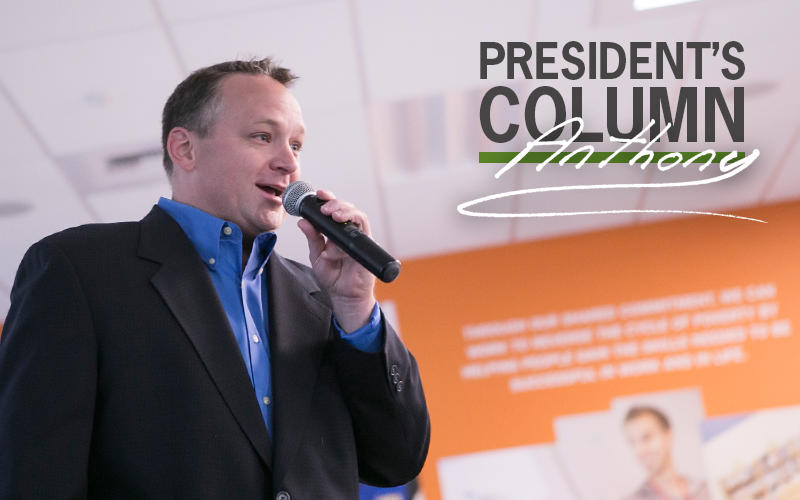By Anthony Anton, president and CEO
I was at a cocktail party over the holidays when I met a musician who had recently moved here from New Jersey. When he heard I represent our state’s hospitality businesses, he asked, “Well, what are the top issues for hotels?”
Among the issues I mentioned were solutions to homelessness.
His response was, “Why would hotels care about homelessness?”
It pointed out how the general public does not understand how a community’s top priorities are also hospitality’s top priorities.
We are a unique industry in that we depend on the success of our community to build successful businesses.
Here’s the reality of that important symbiosis with our community.
If people feel unsafe coming to a downtown hotel property or if employee safety is constantly an issue, guests stay elsewhere, employee turnover increases, resources are wasted and a hotel is no longer a good investment.
If people feel unsafe being in your neighborhood after 9 p.m., they don’t come and have your great happy hour and custom-made cocktail at a time where sales can make the difference.
It’s in our interest to make sure that our guests and communities have strong economies. If the community itself doesn’t have the money to visit your business, you won’t be successful. When unemployment increases to high levels, often travel and meals are the first things to go.
We’re passionate about helping the five homeless people outside your front door because those are five people who could be guests or great employees.
If we want great businesses, it’s up to us to lead and play our part in helping our community succeed. It means stepping out of our comfort zone.
That’s why I applaud the restaurateurs and hoteliers who have gotten involved in the Third Door Coalition to end chronic homelessness. They have realized that Seattle won’t hit its true potential if many of our residents are living in tents instead of in homes.
And while the solutions are complicated, sometimes controversial and certainly not easy, creating great communities was never easy. It should be a challenge, and our leadership should step up to meet it.
We’re only great when our communities are great. And when we’re great, we create a sense of hospitality, openness and home that our communities desperately need in times like this.



















![[Class, May 20] ServSafe Manager, Kent](https://wahospitality.org/wp-content/uploads/2018/07/CALEND1-150x150.png)







